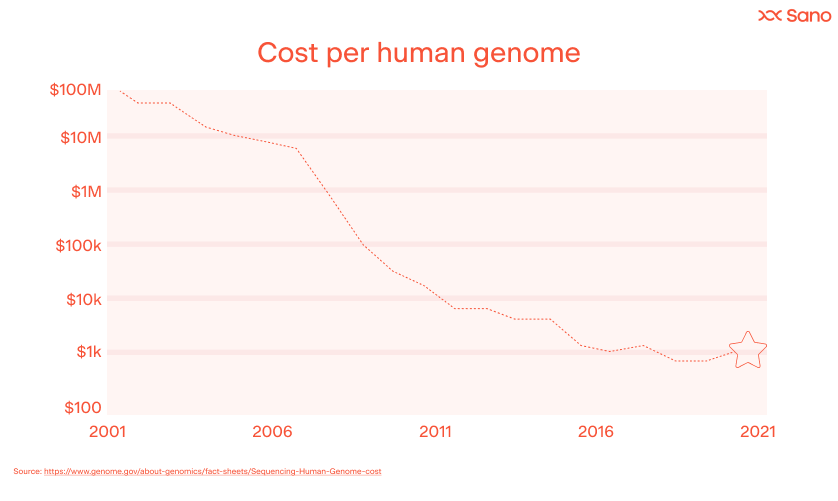For DNA Day, 5 DNA testing solutions for clinical research

National DNA Day, observed on April 25th, commemorates the discovery of the double helix structure of DNA. It’s an annual, global celebration – and this year, it marks both the 20th anniversary of the Human Genome Project’s completion and the 70th anniversary of the discovery of the DNA double helix. National DNA Day is a day to reflect on the importance of genetics and DNA research in our lives, including the impact it has had on healthcare.
Genetic testing has made significant strides in the last few decades, revolutionising the way we understand and diagnose genetic disorders. In the 1970s, the development of recombinant DNA technology enabled scientists to manipulate and clone genes, laying the foundation for modern genetic testing. The first genetic test for a specific genetic disease, Huntington's disease, was introduced in 1986, and since then, hundreds of genetic tests have been developed for a wide range of conditions. The advent of high-throughput DNA sequencing technologies has made genetic testing faster, cheaper, and more accessible, enabling individuals to access genetic testing directly and contributing to the growth of direct-to-consumer genetic testing services. The below graphs illustrate these advances – the cost per human genome has gone from $100M+ in 2001 to under $1,000 in 2021. And, the number of people who have had their DNA sequenced has risen exponentially.


These advances have also opened up new opportunities for DNA research, allowing scientists to explore the genetic basis of disease and develop more personalised treatments and therapies. In this blog post, we highlight five companies using genetic testing to drive medical research forward.
Sano Genetics offers a personalised health platform, enabling individuals to access DNA testing, track their health data, and contribute to medical research, all while maintaining control over their genetic data. For researchers, Sano combines genetic testing, recruitment, and long-term engagement in one platform, accelerating enrollment and simplifying operations for precision medicine studies.
Color provides accessible and affordable genetic testing services, empowering individuals to proactively manage their health and make informed decisions. They specialise in screening for hereditary risks for cancer and heart disease, among other conditions. They make de-identified genetic and health data available to researchers studying the genetic basis of disease.
23andMe offers direct-to-consumer DNA testing and analysis services. They use customers' genetic data to provide ancestry and health reports, and also conduct genetic research by aggregating and analysing the DNA and health information of consenting customers to contribute to a wide range of research studies aimed at improving human health.
Helix offers a platform for DNA testing and analysis. They partner with various organisations to provide customers with access to genetic testing for a range of applications, including ancestry, health, and wellness. Helix also collaborates with researchers to use this genetic data to gain insights into the genetic basis of disease, develop new treatments and therapies, and advance precision medicine.
Luna DNA is a blockchain-based platform that aims to create a community-owned genomic and medical research database. It allows individuals to securely share their genomic data with researchers while maintaining power over their data and receiving rewards for their contributions.
Genetic testing has opened up a new world of possibilities for individuals to take control of their health and make informed decisions about their wellbeing – and for precision medicine developers to leverage this information in their research. As we celebrate DNA Day, it's important to recognize the role of genetics in healthcare and the potential benefits of genetic testing.
If you’re working on a precision medicine registry, natural history study, or clinical trial, Sano Genetics combines genetic testing, recruitment, and long-term engagement in one platform, accelerating enrollment and simplifying operations for precision medicine studies. And if an individual has already had genetic testing, Sano can use that too. Contact our team to learn more.
